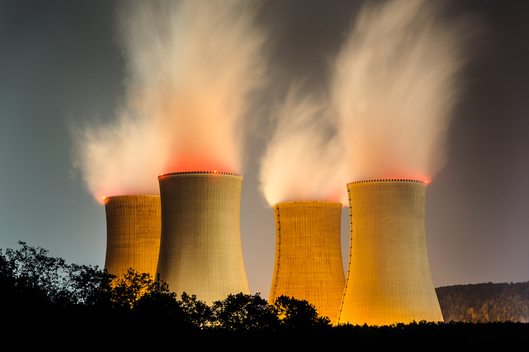Updated in March 2021.
It has already been a year since Czechia embarked on a more concrete path to a new nuclear unit. In March 2020 the majority state owned energy utility ČEZ applied for a “permit for the siting of a nuclear installation” at the site of the existing nuclear power plant Dukovany. It was followed by several steps of the Czech government aiming at securing state support for the project. Firstly, the state negotiated and later approved two contracts with ČEZ, which are setting a cooperation frame between the state and ČEZ as well as conditions under which the state would buy-off from the company the entire project.
Later on in May, the Czech media reported that the government has also approved another document, classified as “secret”, setting specific rules for a nuclear tender, to minimize state security risks connected with foreign investors, especially from Russia and China. The concluded contracts were followed by a governmental draft law, drawing the frame for state aid. The law is currently (March 2021) still stuck in the Parliament, where the opposition has several times managed to block its approval.
State support for the Dukovany project
The state and ČEZ were already for many years keen to build a new nuclear unit. In 2019, ČEZ got a positive decision on the Environmental Impact Assessment for two new 1200 MW units at the existing nuclear power plant Dukovany. The current plan is to build only one 1200 MW unit, to start the construction in 2029 and have the plant operating from 2037. The biggest obstacle so far have been the costs and lack of clarity of how the state would financially support such a huge investment and this should now be overcome by a massive state aid.
In a nutshell, the Minister of Trade and Industry, Mr. Havlíček and the Prime Minister, Mr. Babiš, introduced two concrete forms of state support which complement each other: firstly, the state will be purchasing electricity from the new unit for 30 years or more(up to 60 years considered) for a guaranteed price.

Secondly, the state would grant a loan for ČEZ for 100% investment coverage, to ensure a much lower interest rate than a commercial loan. However, no quantification of the burden for the state budget and the consumers was published for either of the two support schemes.
State aid legislation
The draft law, introduced in May 2020, sets a scheme of financial support to nuclear power. It is called “The law on measures for the Czech Republic’s transition to low-carbon energy”, but it only deals with nuclear power, which in a NewSpeak twist is defined to equal low-carbon energy. The draft law basically establishes a scheme, where the state is purchasing electricity from new nuclear sources for a guaranteed price negotiated with the state. The agreed price should cover all the costs and insure an adequate profit to the investor. However the price is not set in law, it will be negotiated in due time with the Ministry of Industry and approved by the government. Also, the law suggests that the finances needed to pay for the extra guaranteed price will come partly from surcharges on distribution and
transmission fees, paid for by energy consumers.
The original plan presented by the Ministry was that the law would be passed by the Parliament in a so-called “accelerated proceeding” in first reading without any possibilities of amendments . However, after severe criticism, the law went to the regular process including parliamentary committees and three readings. The impact assessment does not contain any detailed economic analyses suggesting how much the guaranteed price would be, although some figures were mentioned in public interviews. The government says the investment would be 160 billions of Czech Crowns (6 bln EUR) and including a state loan for the project, the electricity from the new reactor would cost only 50-60 euro/MWh.
Therefore the guaranteed price that would cover the difference to the future power market price is supposed to be negligible. However, this is extremely optimistic as all other nuclear projects in Europe have shown much higher costs. An economic analysis commissioned by NGO Calla suggests the price of electricity from the new Dukovany unit would be between 78-138 euro/MWh, depending on the extent of the state support. (the analysis available in English: Review of new Czech NPP project Economics of Dukovany). The adoption of the law had been already for several times postponed due to the obstructions by the opposition. The opposition parties are primarily concerned about security risks connected to possible Russian or Chinese builders and are suggesting to exclude these from the upcoming tender.
As for the second form of state support, the state loan, there were no more details available and it is not clear where the state money for the loan would come from. There are only statements of politicians saying that the state will cover from 100% of the investment with a very low interest rate, only recently the aim was only 70%.
While ČEZ got recently approved the above mentioned permit for the siting of a nuclear installation, the other essential steps are not progressing at all and the whole plan is gaining further delays. The law is stuck in the Parliament and it is not sure if it would be approved until the new parliamentary elections in October 2021. Furthermore it is not clear when ČEZ would publish a tender for the builder. The latest news suggests it will be only after the elections. Originally, it was planned to be out before the end of 2020. One of the open issues the government has not decided about is whether the tender would be open for Russian and Chinese companies and under what conditions.
Jiří Jeřábek, energy campaigner at Greenpeace Czech Republic
Edvard Sequens, CALLA
